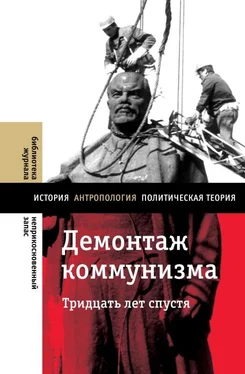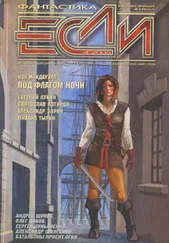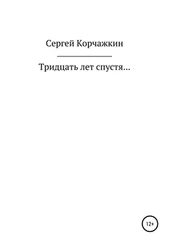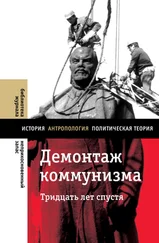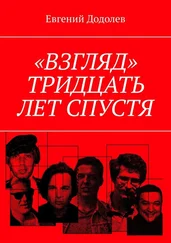Orwell G. The Collected Essays, Journalism and Letters. New York: Harcourt Brace Jovanovich, 1968. Vol. 3. P. 244.
Feffer J. Aftershock. P. 34
Canguilhem G. The Normal and the Pathological / Transl. C. R. Fawcett, R. S. Cohen. New York: Zone Books, 1991.
Классическим примером нечуткости сторонних наблюдателей к историческим коннотациям слова «нормальность» в регионе стала известная статья Андрея Шлейфера и Дэниэла Трейсмана: Shleifer A., Treisman D. Normal Countries. The East 25 Years After Communism // Foreign Affairs. November/December 2014.
Bradshaw P. Graduation review – a five-star study of grubby bureaucratic compromise // Guardian. 19 May 2016.
Smilova R. Promoting «Gender Ideology»: Constitutional Court of Bulgaria Declares Istanbul Convention Unconstitutional // Oxford Human Rights Hub. 22 August 2018; http://ohrh.law.ox.ac.uk/promoting-gender-ideology-constitutional-court-of-bulgaria-declares-istanbul-convention-unconstitutional.
Legutko R. Liberal Democracy vs. Liberal Democrats // Quadrant Online. April 2015.
Левада-Центр, 8 ноября 2019.
В этой главе используются фрагменты моей статьи: Мельвиль А. Ю. Выйти из «гетто»: о вкладе постсоветских исследований / Russian Studies в современную политическую науку // Полис. 2020. № 1.
См., в частности, примечательные исследования Стивена Фиша о проблемах демократизации в Молдове и Монголии, где демократические практики устанавливались в крайне неблагоприятной «структурной» среде: Fish S. The Inner Asian Anomaly: Mongolia’s Democratization in Comparative Perspective // Communist and Post-Communist Studies. 2001. Vol. 34. № 3.
Way L., Casey A. The Structural Sources of Postcommunist Regime Trajectories // Post-Soviet Affairs. 2018. Vol. 34. № 5.
Way L., Levitsky S. The Dynamics of Autocratic Coercion after the Cold War // Communist and Post-Communist Studies. 2006. Vol. 39. № 3.
Greene S. The End of Ambiguity in Russia // Current History. 2015. Vol. 114. № 774.
Way L. A. Pluralism by Default: Weak Autocrats and the Rise of Competitive Politics. Baltimore: Johns Hopkins University Press, 2015.
Gontmaher E., Ross C. The Middle Class and Democratization in Russia // Europe-Asia Studies. 2015. Vol. 67. № 2; см. также: Colton T. Paradoxes of Putinism // Daedalus. 2017. Vol. 146. № 2.
Hanson S. The Evolution of Regimes: What Can Twenty-Five Years of Post-Soviet Change Teach Us? // Perspectives on Politics. 2017. Vol. 15. № 2.
См., например: Foa R. Modernization and Authoritarianism // Journal of Democracy. 2018. Vol. 20. № 3.
Guriev S., Zhuravskaya E. Why Russia is Not South Korea // Journal of International Affairs. 2010. Vol. 63. № 3. См. также: Starodubtsev A. Federalism and Regional Policy in Contemporary Russia. Abingdon: Routledge, Taylor & Francis Group, 2018.
Colton T. Paradoxes of Putinism // Daedalus. 2017. Vol. 146. № 2. См. также: Melville A. The Illiberal World Order and Russian Liberal // Dimensions and Challenges of Russian Liberalism: Historical Drama and New Prospects / R. Cucciolla (ed.). Cham: Springer, 2019.
Petrov N. The Political Mechanics of the Russian Regime: Substitutes Versus Institutions // Russian Politics and Law. 2011 Vol. 49. № 2.
См.: Geddes B. A Comparative Perspective on the Leninist Legacy in Eastern Europe // Comparative Political Studies. 1995. № 28; Hellman J. Winners Take All: The Politics of Partial Reform in Postcommunist Transitions // World Politics. 1998. Vol. 50. № 2; Frye T. In From the Cold: Institutions and Causal Inference in Postcommunist Studies // The Annual Review of Political Science. 2012. № 15.
The New Autocracy. Information, Politics, and Policy in Putin’s Russia / D. Treisman (ed.). Washington, DC: Brookings Institution Press, 2018.
Guriev S. How Transitional Institutions Could Transform Russia’s Economy. 2017; http://carnegie.ru/commentary/74790.
См.: Kitschelt H. Formation of Party Cleavages in Postcommunist Democracies: Theoretical Propositions // Party Politics. 1995. Vol. 1. № 4; Makarenko B. The Role of Elections in Democracy // Democracy in a Russian Mirror / A. Przeworski (ed.). New York: Cambridge University Press, 2015.
Reuter O. J. The Origins of Dominant Parties: Building Authoritarian Institutions in Post-Soviet Russia. Cambridge: Cambridge University Press, 2017.
Moller J., Skaaning S. - E . Stateness First? // Democratization. 2011. Vol. 18. № 1.
Bratton M., Chang E. State Building and Democratization in Sub-Saharan Africa: Forwards, Backwards, or Together? // Comparative Political Studies. 2006. Vol. 39. № 9.
Back H., Hadenius A. Democracy and State Capacity: Exploring a J-Shaped Relationship // Governance; An International Journal of Policy, Administration, and Institutions. 2008. Vol. 21. № 1.
Melville A., Mironyuk M. «Bad Enough Governance»: State Capacity and Quality of Institutions in Post-Soviet Autocracies // Post-Soviet Affairs. 2016. Vol. 32. № 2.
Hellman J. Winners Take All: The Politics of Partial Reform in Postcommunist Transitions.
Roeder Ph. G. Varieties of Post-Soviet Authoritarian Regimes // Post-Soviet Affairs. 1994. Vol. 10. № 1.
Hale H. E. Patronal Politics. Eurasian Regime Change Dynamics in Comparative Perspective. New York: Cambridge University Press, 2015.
The New Autocracy. Information, Politics, and Policy in Putin’s Russia / D. Treisman (ed.). Washington, DC: Brookings Institution Press, 2018.
https://republic.ru/posts/91992.
Democracy Facing Global Challenges. V-Dem Institute, University of Gothenburg, 2020.
Элиас Н. О процессе цивилизации. Социогенетические и психогенетические исследования. Изменение в поведении высшего слоя мирян в странах Запада. М.; СПб.: Университетская книга, 2001. Т. 1–2.
Читать дальше
Конец ознакомительного отрывка
Купить книгу
